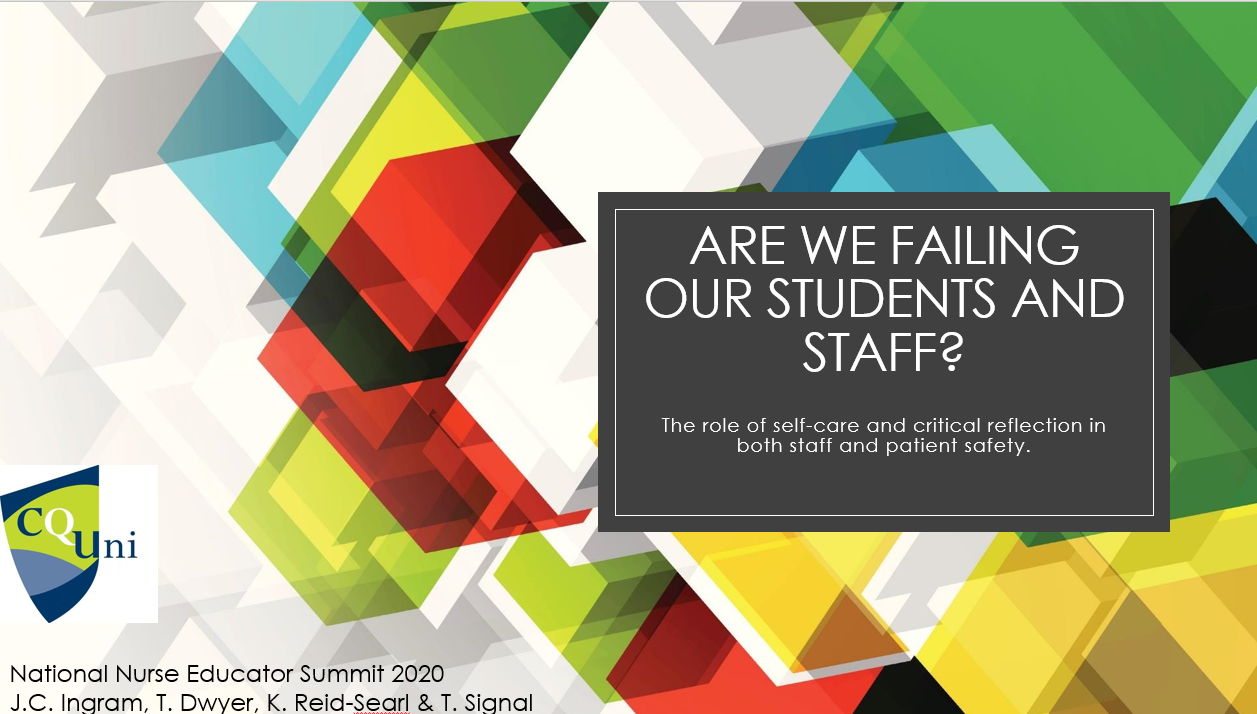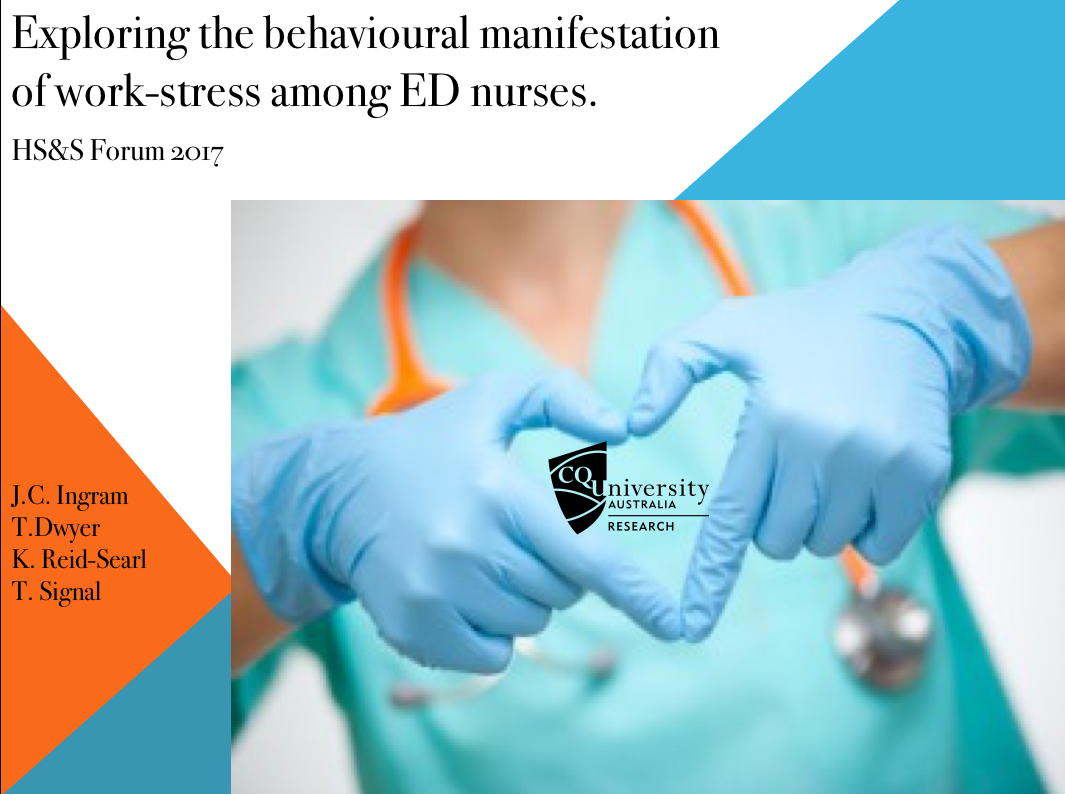A snapshot of presentations stemming from this and past research delivered at domestic and international conferences.
NATIONAL NURSE EDUCATOR SUMMIT, WASHINGTON 2020 (COVID CANCELLED)
This presentation was to report on nurses’ perceptions of their preparedness for the workplace in terms of stress management, emotional trauma, cognitive dissonance and resilience. The findings of recent research point to opportunities for improvement within tertiary nursing education and in-house support.
RCN occupational health nursing conference, london 2020 (covid cancelled)
Reporting on the incidental findings of the author’s PhD research, this presentation was to provide a startling overview, in survivors’ own words, of an insidious, underreported and inadequately managed phenomenon; the sexual abuse of ED nurses by ED patients.
International conference on sexual assault, domestic violence and violence across the lifespan. Washington 2019 (covid cancelled -2020)
Gendered violence was to be explored within the context of female nurses and male patients. Results were situated within the broader context of victim blaming and societal desensitisation to violence towards women.
INNOVATION & RESEARCH SHOWCASE CQHHS/CQU, ROCKHAMPTON 2018
Though confronting, this presentation gave voice to the experiences of ED-nurse survivors of extreme instances of patient violence; physical abuse, sexual assault and threats against life and family.
improving hospital safety and security, sydney 2018
This presentation explored the statistically demonstrable effect of occupational violence at the hands of patients on professional quality of life among Australian emergency nurses. Particular attention was drawn to the plight of those affected by sexually motivated abuse.
Improving hospital safety and security, Sydney 2017
The focus of this presentation was nurses' own perceptions of how work-stress affects their day-to-day encounters with patients, specifically their conflict management skills and attitudes towards patients as a whole.
International conference for emergency nurses. Alice springs 2016
Professional conduct at the point of patient care was explored within the context of work-stress in this presentation. Particular attention was paid to professional quality of life and abuse-condoning attitudes among participants.
International conference for emergency nurses. Alice springs 2016
This presentation explored the potential knock-on effects for patient safety when emergency nurses experience elevated work-stress. The ProQOL V and an adaptation of the Conflict Tactics Scale were integral to data collection.
International conference for emergency nurses. Alice springs 2016
Violence at the hands of patients is a major risk for nurses both at work and if recognised by patients in their communities while off-duty. The case is made for adopting the broadest possible definition of occupational violence moving forward so as to more fully understand the blurred line between on and off-duty work-related risks.
international conference on violence in the health sector. amsterdam 2010
Reporting on the results of Honours research, this presentation provided an overview of demonstrably effective violence-reduction strategies for the ED waiting room environment. It also explored those institutional barriers to occupational violence research and impediments to the implementation of evidence based violence-reduction strategies at the local level.
international conference for emergency nurses. Coogee Beach 2005
This presentation reported the findings of a pre- & post-test research project conducted in the waiting room of a regional ED. A leaflet was designed and distributed to waiting room patients detailing the triage process, likely waiting times, acceptable standards of conduct and security measures at the facility. The project achieved a 52% reduction in patient-initiated violence reported post-intervention. Inter-staff violence was unaffected by the leaflet intervention. The only instance of physical assault reported post-intervention was between two staff.











